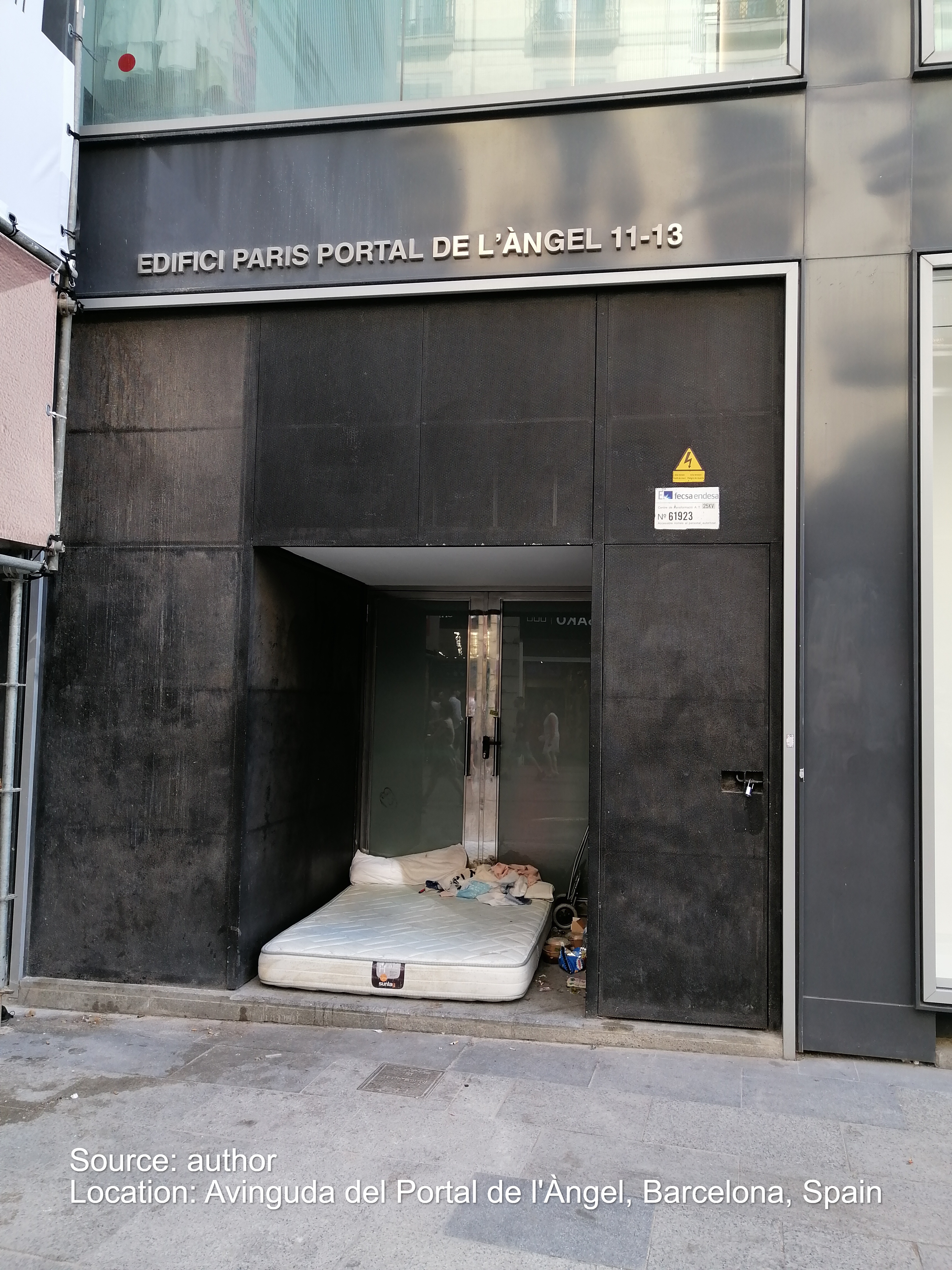Defining homelessness as a housing problem
Posted on 28-10-2022
Homelessness is a complex social problem and an extreme form of poverty that is on the rise. It is not only income-related, but it also includes quality of life and safety.
It diminishes a person's dignity and productive potential. The most common causes of homelessness in Europe are limited access to affordable housing and a precarious labour market. As part of the RE-DWELL project, we are trying to define what affordable housing means, not only for the low- or middle-income population but also for those most in need of affordable and safe housing.
The European Typology of Homelessness and Housing Market Exclusion (ETHOS) typology is an international typology that aims to define and recognise different types of homelessness. The methodology was developed in 2005 by the European Federation of Organisations Working on Homelessness (FEANTSA) and includes four broad categories of homelessness: rooflessness, houselessness, insecure housing, and inadequate housing. These four categories are further subdivided into thirteen categories covering different housing situations that can be compared internationally and targeted by different policies.
The Croatian national definition of homelessness does not follow the ETHOS typology, but instead defines as homeless a person without a residence or means to meet housing needs who temporarily lives in a shelter or stays in public places for housing.
The immediate limitations of this definition are obvious, as the definition does not recognise any safety or quality housing standards and does not take into account people coming from different institutions (social care or prisons) who have no housing options other than emergency shelters.
In Croatia, local authorities are legally required to provide a minimum level of funding for soup kitchens and emergency shelters, but it is largely left to civil societies to apply for these funds and to provide these services to the homeless. Thus, Croatian service for homelessness is mostly “passive” and oriented towards emergency help and remedy programmes, with some additional services within shelters, but also there is an initiative towards an “active” form of service which is a Housing First pilot project in the city of Pula.
During my two-month assignment at the RE-DWELL partner organisation "CERANEO - Centre for the Development of Non-Profit Organisations" in Zagreb, Croatia, I had first-hand access to CERANEO's resources, which are the result of the organisation's fruitful cooperation with many civil society organisations. CERANEO addresses not only homelessness but also other social issues and through its work strengthens the position of other civil society organisations in Croatia through networking, cooperation and funding. The aim of the secondment was to interview providers of homelessness services and assess their financial, organisational and social sustainability in providing services. To this end, one of the key contacts was the Croatian Homeless Network (HMB), which provided helpful insights into the problems faced by service providers in Croatia
The bottom line is that civil society organisations providing services to the homeless in Croatia are the most important actors in the fight against homelessness and they need better dialogue with policy makers. They also need long-term funding for programmes that could improve services and eliminate homelessness. It is also important to properly define homelessness so that no one in need of housing is left behind.
Publications
Horvat, M. & Bežovan, G. (2022, August-September). Analysis of sustainability of service providers for social integration of the homeless in Croatia. In European Network for Housing Research (ENHR) Conference 2022, Barcelona, Spain.
Posted on 04-03-2026
Conference
Read more ->

